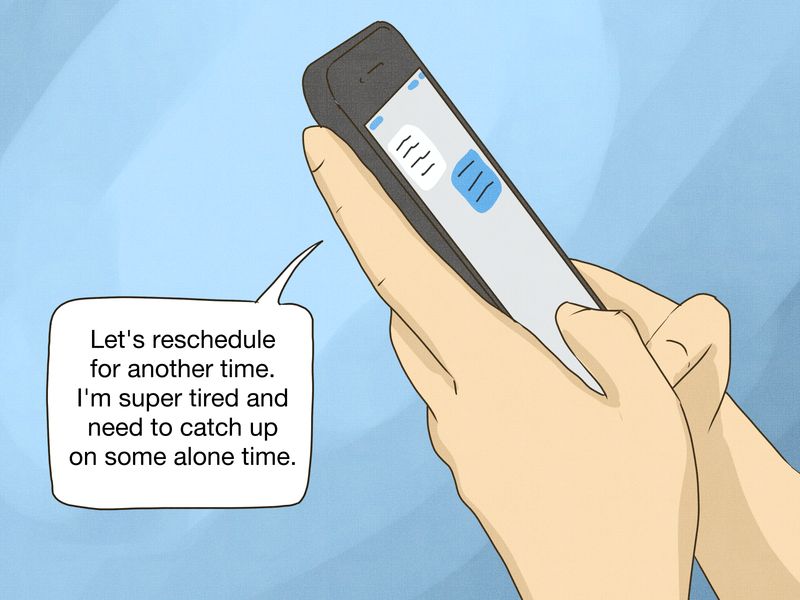Are You A “Cool” Parent… Or Just Permissive? 18 Signs Your Teen Might Be Running The Show
Navigating the tricky waters of parenting teens can sometimes feel like a circus juggling act. While trying to be the relatable and understanding parent, it’s easy to slide down the slippery slope from “cool” to permissive.
This post is your eye-opening guide to discovering whether your teenager is subtly steering the family ship. Here are 18 signs that might just confirm your teen has taken the wheel.
1. They Interrupt You Without Consequences

Interruptions can feel like a power struggle, subtly shifting the dynamics in your home. Your teen has mastered the art of cutting you off mid-sentence without a hint of remorse.
If you’re consistently losing your train of thought because they jump in whenever they want, there’s a problem. Allowing this behavior establishes a precedent where your words—and authority—are overshadowed by their impulses.
This constant interruption isn’t just rude; it signals a deeper issue of respect and boundaries. Teaching your teen to listen and wait their turn is crucial for maintaining a balanced household.
2. You’re Afraid to Say No

Saying ‘no’ can feel daunting, especially when you worry about the backlash from your teen. The fear of being the bad guy often leads to agreeing to things against your better judgment.
Perhaps you’re not ready for their dramatic eye rolls or sulky silence. But, giving in too often can gradually erode your parental authority.
Learn to stand firm with your decisions. Accepting the occasional discontent from your teen teaches them valuable lessons in limits and discipline, and it reinforces your role as a parent rather than just a friend.
3. They Dictate Mealtimes, Bedtimes, and Everything In Between

Has your household schedule become dictated by your teen’s whims? If meal and bedtimes shift based on their preferences, it could be a sign they’re running the show.
Schedules that once provided structure now revolve around their social calendar. This scenario often results in disrupted routines and stressed parents trying to accommodate ever-changing plans.
Reclaiming control means setting and adhering to agreed-upon family schedules, ensuring everyone’s needs are met and promoting a harmonious family life.
4. You’re Bribing More Than You’re Parenting

When parenting feels more like negotiation, you might find yourself resorting to bribes. Offering rewards for basic cooperation is a slippery slope to a transactional relationship.
Your teen has learned that compliance comes with a price tag, and they might push the limits to see what more they can get. This habit undermines genuine respect and adherence to family values.
Focus instead on fostering intrinsic motivation by encouraging responsibility and recognizing achievements without material incentives.
5. Boundaries Feel Negotiable—Every Time

Boundaries are crucial for a stable environment, yet if every rule feels up for debate, your authority might be slipping away. Does your teen often convince you to adjust the rules on the fly?
This atmosphere of negotiability can lead to inconsistent discipline and blurred lines. When boundaries shift to accommodate their desires, it sends a message that rules are merely suggestions.
Reinforcing consistent boundaries ensures clarity and respect, helping your teen understand the importance of limits and the value of rules.
6. They Talk to You Like a Peer, Not a Parent

While a friendly relationship with your teen is wonderful, it’s important not to lose your parental status. If your teen talks to you more like a peer, the lines might be too blurred.
Conversations that lack respect or include inappropriate language signal a shift in dynamics. While camaraderie is positive, maintaining a level of formality reinforces respect.
Encourage open dialogue but remind them that you are still the parent, deserving a level of discourse that reflects your role.
7. You’re Constantly Cleaning Up Their Messes

If you find yourself perpetually cleaning up after your teen, it’s time to reassess the responsibilities they’re shouldering. While it’s natural to lend a helping hand, doing their chores enables dependency rather than independence.
Your teen should learn accountability for their actions, including cleaning up their own messes. Allowing them to shirk responsibilities sends a message that someone else will always pick up the slack.
Encourage them to contribute to the household by tackling their chores, fostering a sense of ownership and responsibility.
8. Their Emotions Control the Household Mood

Emotional intelligence is important, but when a teen’s emotions dictate the household atmosphere, it’s time for recalibration. The household shouldn’t revolve around one person’s feelings.
If everyone walks on eggshells to prevent upsetting your teen, their emotions have gained too much control. This environment creates unnecessary tension and stress for the entire family.
Guide your teen towards understanding and managing their emotions, fostering a balanced atmosphere where all members’ feelings are respected and considered.
9. They Guilt You Into Changing Rules

Manipulation through guilt is a tactic teens may employ to sway parental rules. If you find yourself frequently altering rules out of guilt, it’s time to reassert your authority.
This emotional strategy not only undermines your decisions but also teaches them that rules can be easily bypassed. It’s crucial to stand firm and make it clear that rules exist for their well-being.
Encourage healthy conversations about rules, emphasizing that while input is valued, ultimate decisions rest with you, the parent.
10. You Justify Behavior You Wouldn’t Tolerate From Anyone Else

Do you find yourself making excuses for your teen’s behavior that you wouldn’t accept from others? This double standard can erode authority.
It’s easy to rationalize their actions because you love them, but it’s important to hold them to the same standards as everyone else. Accepting poor behavior sends a message that they are above the rules.
Uphold consistent expectations and address behavior that crosses the line, fostering respect and accountability.
11. Discipline Gets Replaced With “Suggestions”

When discipline is soft-pedaled into mere suggestions, the parent’s authority can quickly diminish. If your instructions often sound more like advice than rules, your teen might not be taking you seriously.
This informal approach could lead to them ignoring your guidance entirely, mistaking parental counsel for optional input rather than mandatory rules.
Establish clear, firm guidelines to reaffirm your role as the authority figure, ensuring your teen understands the importance of following rules and respecting your guidance.
12. They Don’t Know How to Hear the Word “No”

When ‘no’ is met with shock and disbelief, it may indicate an imbalance in your parenting approach. Teens need to learn that not every request will be fulfilled.
Si they’re used to having every whim catered to, hearing ‘no’ can become a rare and unwelcome surprise. This could lead to emotional outbursts or relentless negotiating to change your stance.
Being consistent with your responses and standing firm teaches your teen resilience and acceptance, skills they’ll need in the real world.
13. You Let Bad Behavior Slide to “Keep the Peace”

In the quest for a harmonious household, it can be tempting to overlook bad behavior. However, letting things slide to avoid confrontation sets a precedent for continued disrespect.
It might keep the peace momentarily, but it doesn’t address the root of the problem, allowing issues to fester beneath the surface.
Addressing behavior promptly and effectively ensures clear expectations and fosters a respectful and peaceful environment in the long term, rather than a temporary truce.
14. You’ve Stopped Enforcing Routines

When the structured routines that once kept the household running smoothly begin to dissolve, it might be time for a reset. Teens often push boundaries, but a lack of routine can lead to chaos and confusion.
If your teen is ignoring planned activities or schedules, the household may suffer from a lack of consistency. This environment can breed stress and annoyance among family members.
Reinstating routines reinforces the importance of structure, helping everyone know what to expect and contributing to a more harmonious home life.
15. You Give Up Your Plans to Suit Theirs—Always

Constantly adjusting your plans to accommodate your teen’s schedule can indicate an imbalance in priorities. While flexibility is a valuable trait, consistently putting your needs aside fosters a one-sided relationship.
This pattern can lead to feelings of resentment and a lack of appreciation from your teen. They might start to expect your life to revolve around theirs, without reciprocation.
Balancing both your needs and theirs encourages mutual respect and understanding, ensuring both parties feel valued and heard.
16. You Avoid Conflict Even When It Matters

Conflict avoidance is understandable but can be detrimental when important issues are at stake. If you shy away from necessary confrontations, your teen might see this as a green light to continue problematic behavior.
This avoidance can erode your authority, signaling that you’re unwilling to address the tough topics. It’s crucial to tackle disagreements head-on while remaining calm and composed.
Confronting issues directly helps maintain respect and prevents small problems from spiraling into larger ones, ensuring a healthy and communicative family dynamic.
17. They Act Entitled to Things They Haven’t Earned

Entitlement can creep in when teens receive privileges they haven’t worked for. If your teen expects rewards without effort, it’s time to evaluate the balance of work and reward in your household.
Entitlement can lead to unrealistic expectations and a lack of appreciation for what they have. Encouraging your teen to contribute to the household or earn their privileges fosters responsibility and gratitude.
Teaching the value of hard work and the satisfaction of earning something promotes a healthy, balanced approach to life.
18. You Realize You’re Doing More Emotional Labor Than They Are

Emotional labor is part of parenting, but when it feels one-sided, it can become overwhelming. If you’re constantly managing your teen’s emotional landscape without any reciprocation, it’s a sign of imbalance.
Your teen should learn to navigate their emotions independently over time, rather than relying solely on you for support. This independence fosters resilience and maturity.
Encourage them to engage in self-reflection and problem-solving, promoting emotional growth and reducing the emotional labor on your part.







